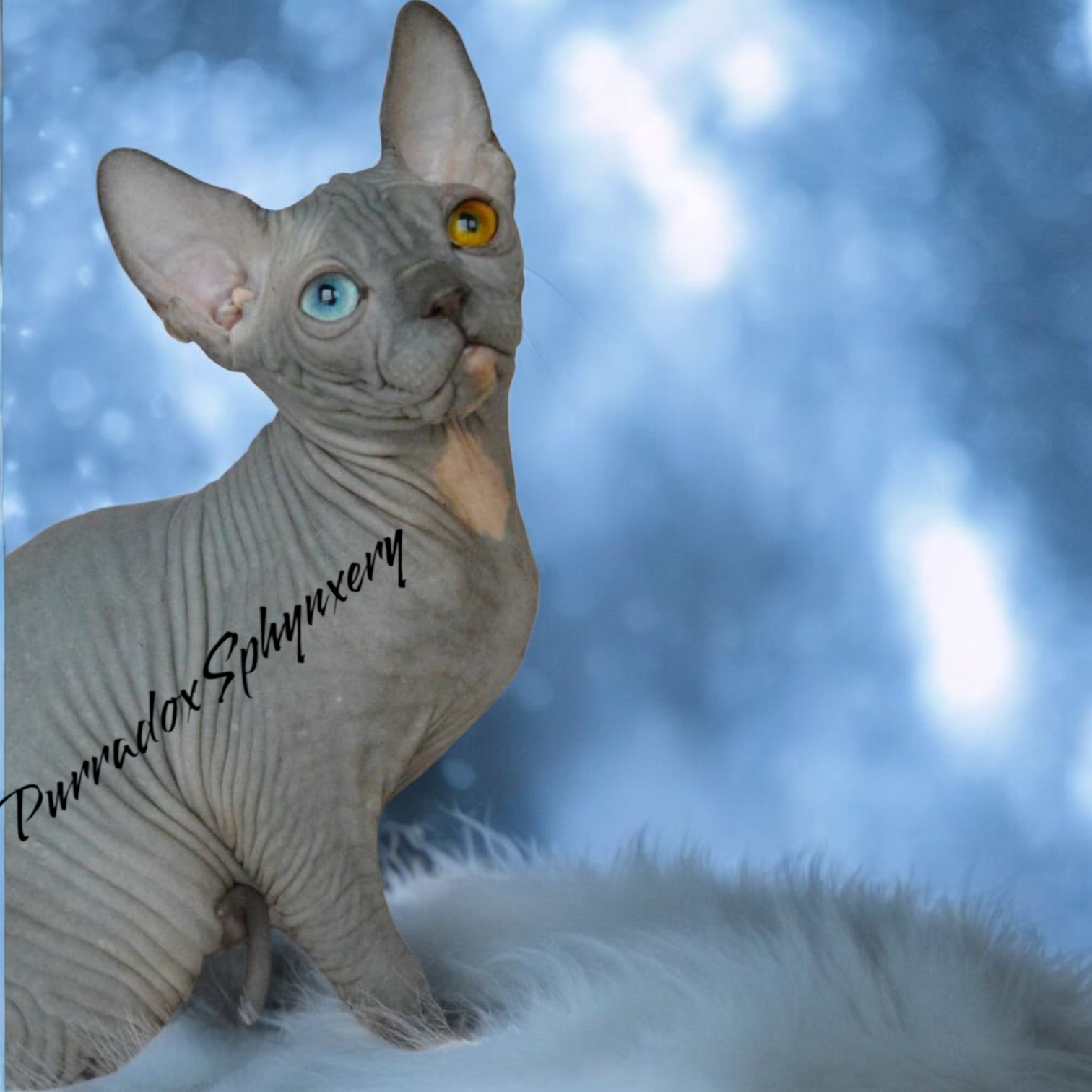Dental health is an often-overlooked aspect of caring for Sphynx cats, but it plays a critical role in their overall well-being. Like humans, cats can suffer from dental problems such as gingivitis, periodontal disease, and tooth decay. In this comprehensive guide, we’ll cover the sphynx cat dental care best practices for maintaining your Sphynx cat’s health, common dental issues they may face, and how to keep their teeth and gums in top condition.
Why Sphynx Cat Dental Care is Important
Sphynx Cat dental care is closely linked to their overall well-being. Poor dental hygiene can lead to painful infections, tooth loss, and even systemic issues affecting the heart, kidneys, and liver. Cats with untreated dental problems may also experience difficulty eating, which can lead to malnutrition or other health concerns.
Sphynx cats are particularly prone to gingivitis and periodontal disease, making regular dental care essential. Gingivitis, an inflammation of the gums, can develop early in a Sphynx’s life if not properly managed. Left untreated, it can progress into periodontal disease, which causes damage to the structures that support the teeth, ultimately leading to tooth loss.
Learn more about Common Health Issues in Sphynx Cats.
Common Dental Issues in Sphynx Cats
- Gingivitis
Gingivitis is the inflammation of the gums and is one of the earliest signs of dental disease in cats. It’s caused by plaque buildup on the teeth and gums, which can lead to infection if not properly cleaned. - Periodontal Disease
If gingivitis is not treated, it can progress to periodontal disease, where the tissues supporting the teeth are damaged. This can result in loose teeth, tooth loss, and severe pain for your cat. - Tooth Resorption
Tooth resorption is a condition where the structure of a tooth is gradually destroyed and absorbed by the body. This painful condition often goes unnoticed until it’s in advanced stages, making routine dental exams critical for early detection. - Tartar and Plaque Buildup
Without regular cleanings, plaque can harden into tartar, which cannot be removed by simple brushing. This buildup can lead to infections and other health problems if not addressed by a vet.
Daily and Routine Sphynx Cat Dental Care
Maintaining your Sphynx cat’s dental care starts with a good at-home care routine. Here are the steps you should follow:
- Brush Your Cat’s Teeth
Brushing your cat’s teeth daily or at least several times a week is one of the most effective ways to prevent plaque buildup. Use a cat-friendly toothbrush and veterinarian-approved toothpaste to gently clean their teeth and gums. - Dental Chews and Treats
Incorporating dental treats and chews into your Sphynx’s diet can help reduce plaque and tartar. These products are designed to promote chewing, which naturally cleans your cat’s teeth. - Water Additives
Water additives are an easy way to help keep your cat’s mouth clean between brushings. These products can be added to your cat’s water bowl and help reduce plaque and freshen breath. - Routine Vet Dental Checkups
Regular dental exams are essential for catching potential issues early. During these visits, your vet will examine your cat’s mouth and may recommend a professional dental cleaning if necessary. Annual dental cleanings can help prevent more serious problems, such as periodontal disease and tooth resorption.
Professional Dental Cleanings
If your vet recommends a professional dental cleaning, it’s important to follow through. These cleanings are typically performed under anesthesia and involve scaling and polishing the teeth to remove tartar and plaque. Your vet may also take dental X-rays to check for any underlying issues such as tooth resorption or abscesses.
While these cleanings represent an additional cost, they are essential for preventing painful dental diseases and ensuring your Sphynx cat remains healthy.
How to Recognize Dental Problems in Your Sphynx Cat
Recognizing the early signs of dental problems can help you address them before they become serious. Watch for the following symptoms in your Sphynx:
- Bad breath (halitosis)
- Swollen or bleeding gums
- Yellow or brown tartar buildup
- Difficulty eating or chewing
- Drooling or pawing at the mouth
- Weight loss due to difficulty eating
If you notice any of these signs, schedule a vet appointment right away to have your cat’s teeth examined.
Cost of Dental Care for Sphynx Cats
The cost of dental care varies depending on your location and the severity of your cat’s dental issues. Routine checkups may cost between $50 to $100, while professional cleanings can range from $300 to $800. More severe cases requiring tooth extractions or other procedures may cost more.
Preventive dental care, including daily brushing and regular vet visits, can help minimize these costs in the long run by preventing serious dental diseases.
Conclusion
Maintaining your Sphynx cat’s dental health is essential for their overall well-being. By brushing their teeth regularly, offering dental treats, and scheduling routine vet checkups, you can prevent common dental issues like gingivitis, periodontal disease, and tooth resorption. With proper dental care, your Sphynx will enjoy a healthier and happier life.

